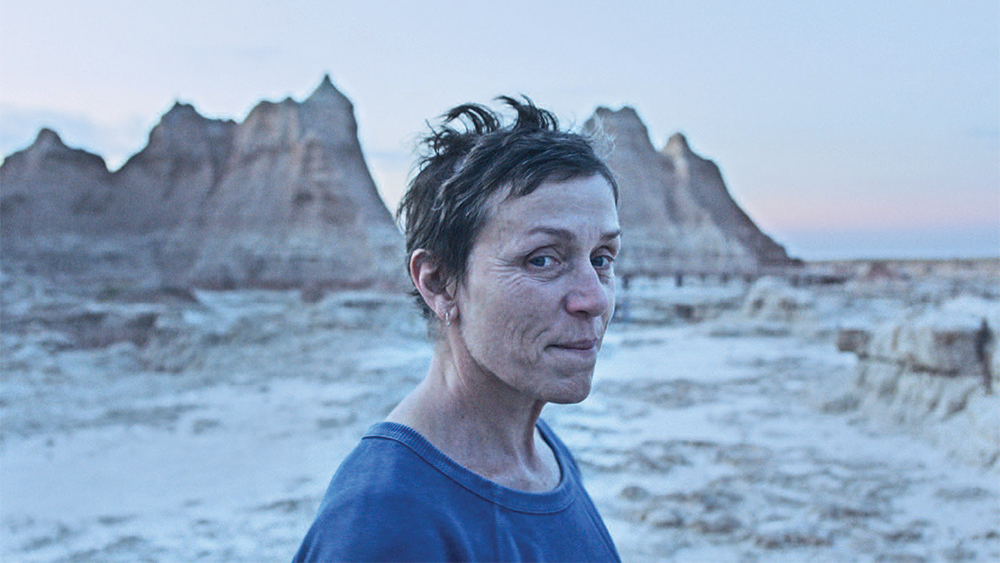Nomadland
by Hope Madden
Nobody sees American poverty as honestly or as poetically as filmmaker Chloé Zhao.
Those who saw Zhao’s sublime 2018 cowboy story The Rider will recognize her romantic fascination with the American West. That’s not the only thumbprint the filmmaker leaves on her third feature, Nomadland.
She weaves a spontaneous, near-verite style into lonesome, wide vistas of a rugged America we think of as lost to time. In doing so, Zhao creates a lucid dream where struggle as reality is somehow beautiful but never sentimental.
The incandescent Frances McDormand stars as Fern, an itinerant widow since her hometown of Empire, Nevada ceased to exist once the gypsum mine closed. We join Fern on her journey sometime after that collapse. She’s just beginning to customize “Vanguard,” the van that serves as her new home.
In that same loose style that’s marked Zhao’s previous films, Nomadland follows Fern through her days, boxing product for Amazon in the winter, working vacation rest stops and tourist destinations in season, and traveling the country in the meantime following work, looking for a safe place to park, and getting to know this country.
Zhao—who writes, edits, and produces as well as directs—based the screenplay on Jessica Bruder’s nonfiction book. Empire was a real place. Fern is a fictional character, but those who mentor her in her new life—including the endlessly endearing Linda May and brilliantly saucy Swankie—are, indeed, real nomads.
McDormand is perhaps the only perennial Oscar contender who could fit so seamlessly in this tapestry. Without an ounce of vanity or artifice, her performance allows this film to be one of resilience and promise. Given that Normadland is, in fact, the story of a penniless Sixtysomething widow who lives in a van, that is in itself a minor miracle.
But that’s the film—a minor miracle. Perhaps only in a year when the billion-dollar franchises were mainly held at bay could we make enough space to appreciate this vital and beautiful reimagining of the rugged American tale of individualism and freedom, which is almost always also a story of poverty.

